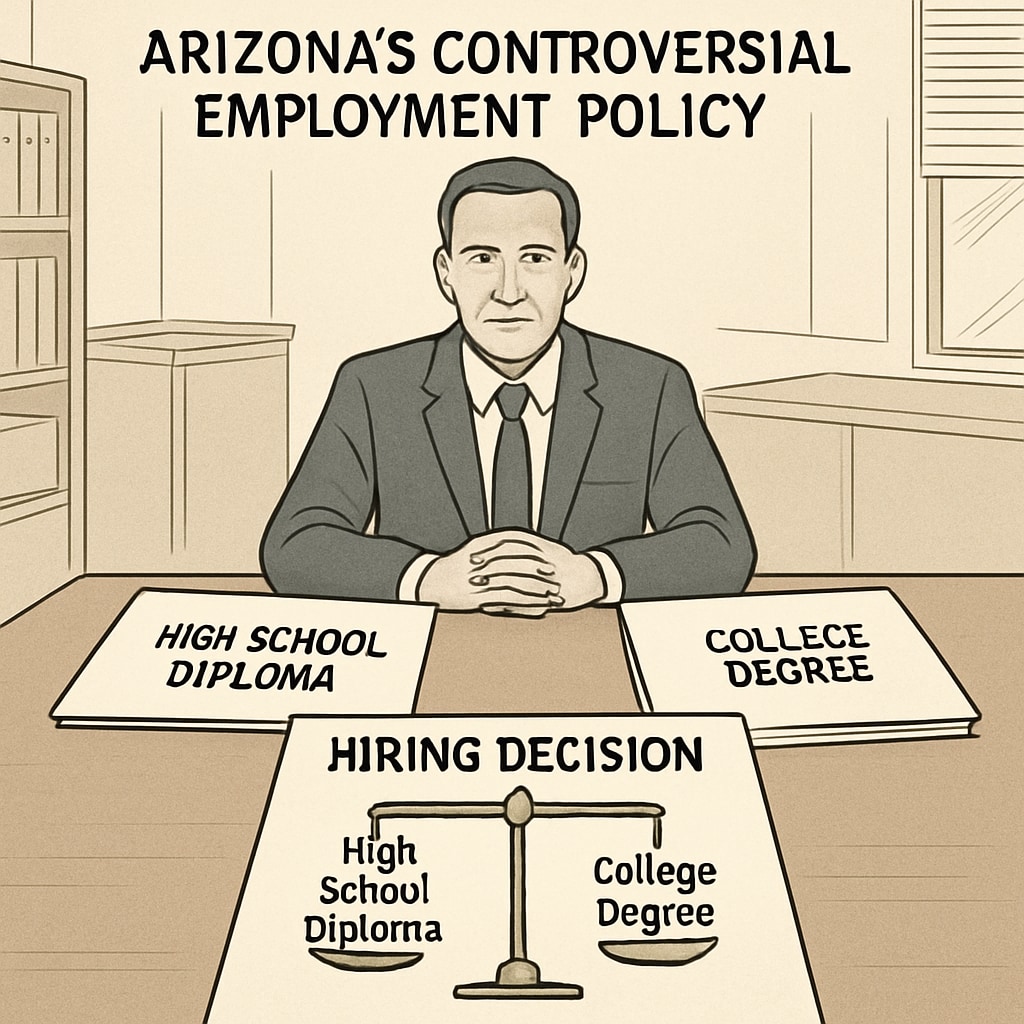Arizona’s recent employment policy, requiring a high school diploma while discounting higher academic qualifications like college degrees, has ignited a heated debate about education standards and employment discrimination. Critics argue that this approach undermines the value of advanced education, sending a questionable message about the role of academic achievement in professional success. This article explores the implications of this policy, its potential flaws, and suggestions for a fairer qualification evaluation system.
Why Prioritize High School Diplomas Over College Degrees?
Arizona’s decision to prioritize high school diplomas stems from a desire to simplify hiring processes and ensure accessibility for a broader pool of applicants. The policy aims to eliminate barriers for individuals who may not have pursued higher education but possess relevant skills for government roles. However, this approach raises critical questions about whether it sacrifices quality and expertise in favor of inclusivity.

While the intention might be to create equal opportunities, critics argue that disregarding college degrees undermines the value of advanced knowledge and specialized expertise. For example, roles requiring analytical, technical, or managerial skills often benefit from the in-depth training and broader perspective that higher education provides.
Impacts on Employment Discrimination and Education Value
Policies favoring high school diplomas may inadvertently contribute to employment discrimination against those who invested time and resources in earning college degrees. Graduates with advanced qualifications might find themselves excluded from opportunities they are overqualified for, raising concerns about fairness and meritocracy.

Moreover, such policies could send harmful signals about the diminishing importance of higher education, potentially discouraging future generations from pursuing advanced learning. If a high school diploma suffices for government positions, some might question the return on investment of college education, leading to broader societal shifts in educational aspirations.
Building a Balanced Qualification Framework
To address these concerns, experts suggest creating a more balanced evaluation framework for employment qualifications. Here are some key recommendations:
- Role-Specific Criteria: Tailor qualification requirements to the specific demands of each position, ensuring that neither high school nor college credentials are arbitrarily favored.
- Skills-Based Assessments: Implement skills tests or practical evaluations to measure candidates’ capabilities, regardless of their formal education levels.
- Hybrid Policies: Combine academic qualifications with professional experience to create a holistic view of candidates’ suitability for a role.
By adopting such measures, Arizona could maintain inclusivity while preserving the integrity and value of advanced education.
Conclusion: Striking the Right Balance
The debate over Arizona’s employment policy highlights the need for nuanced approaches to qualification assessments. Instead of choosing between high school diplomas and college degrees, a balanced framework that values both education and practical skills can ensure fairness and meritocracy. As the conversation continues, policymakers must weigh the long-term implications of such decisions on society’s perception of education and professional success.
Readability guidance: This article uses short paragraphs, active voice, and lists to summarize key points. Overuse of complex sentences and passive constructions has been avoided to ensure clarity and engagement.


